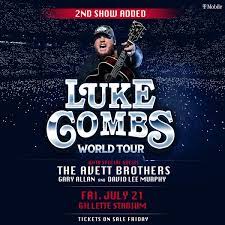Music Workshops: Unlocking the Melodic Potential within You
Music has the remarkable ability to transcend language barriers and touch our souls. It has the power to evoke emotions, create connections, and inspire us in ways that words alone cannot. Whether you’re a seasoned musician or someone who simply enjoys listening to music, participating in a music workshop can be an incredible opportunity to deepen your understanding and appreciation of this art form.
A music workshop is a unique learning experience that brings together individuals with a shared passion for music. It provides a platform for participants to explore new techniques, expand their musical horizons, and collaborate with like-minded individuals in a supportive environment. These workshops are led by skilled musicians and educators who are dedicated to sharing their knowledge and expertise.
One of the key benefits of attending a music workshop is the opportunity for growth and personal development. Regardless of your skill level or musical background, you can enhance your understanding of theory, improve your technical skills, and gain valuable insights into different genres and styles of music. The guidance and feedback provided by experienced instructors can help you refine your technique, overcome challenges, and take your musical abilities to new heights.
Music workshops also offer a chance for collaboration and networking. When you participate in a workshop, you become part of a community of musicians who share similar interests. This creates an environment where ideas can be exchanged freely, collaborations can be formed, and lifelong friendships can be forged. Working alongside other musicians allows you to learn from their experiences, broaden your musical perspective, and potentially discover new creative avenues.
Furthermore, music workshops often provide performance opportunities that allow participants to showcase their newfound skills in front of an audience. These performances not only build confidence but also foster a sense of accomplishment as you witness the progress you’ve made throughout the workshop.
In addition to personal growth and collaboration, attending music workshops can also serve as an avenue for self-expression and stress relief. Music has been proven to have therapeutic effects, providing an outlet for emotions and promoting overall well-being. Engaging in a music workshop can offer a sense of fulfillment and joy as you immerse yourself in the creative process.
Whether you’re an aspiring musician, a hobbyist looking to refine your skills, or someone simply seeking a new musical experience, music workshops provide a unique opportunity to deepen your connection with music. They offer an environment where learning is celebrated, creativity is nurtured, and the power of music is truly embraced.
So why not take that leap and explore the world of music workshops? Discover new techniques, connect with fellow musicians, and unlock the melodic potential within you. Let the transformative power of music guide you on a journey of self-discovery and artistic growth.
Frequently Asked Questions: Planning a Music Workshop and Understanding Music Workshops
How do you plan a music workshop?
Planning a music workshop requires careful organization and consideration of various factors to ensure a successful and engaging experience for participants. Here are some key steps to help you plan a music workshop:
- Define the Purpose: Determine the objective and focus of your workshop. Are you aiming to teach specific skills, explore a particular genre, or introduce participants to new techniques? Clarifying the purpose will guide your planning process.
- Identify the Target Audience: Determine the intended participants for your workshop. Consider their skill levels, musical backgrounds, and interests. This will help you tailor the content and structure of the workshop to meet their needs.
- Set Goals and Learning Outcomes: Establish clear goals and learning outcomes that you want participants to achieve by the end of the workshop. These could include mastering specific techniques, understanding music theory concepts, or developing collaborative skills.
- Choose an Experienced Facilitator: Find an experienced facilitator who is knowledgeable in the subject matter and possesses teaching skills. They should be able to effectively convey information, engage participants, and create a positive learning environment.
- Select a Suitable Venue: Choose a venue that can accommodate the number of participants comfortably and has appropriate facilities for musical activities. Consider factors such as acoustics, availability of musical instruments/equipment, seating arrangements, and accessibility.
- Develop an Engaging Curriculum: Design a well-structured curriculum that covers relevant topics or skills based on your workshop’s purpose and target audience. Break down the content into manageable sessions with clear objectives for each segment.
- Plan Activities and Exercises: Incorporate interactive activities, exercises, and hands-on experiences into your workshop to actively engage participants in their learning process. These can include group performances, individual practice sessions, improvisation exercises, or even songwriting collaborations.
- Arrange for Materials and Resources: Ensure that you have all necessary materials and resources ready for use during the workshop. This may include sheet music, instruments, audio equipment, visual aids, handouts, or any other materials specific to the workshop content.
- Establish a Schedule: Create a detailed schedule that outlines the timing and sequence of activities throughout the workshop. Allow for breaks and transitions to keep participants energized and focused.
- Promote and Register Participants: Develop a marketing strategy to promote your workshop through various channels such as social media, websites, local music communities, or newsletters. Set up a registration process to manage participant sign-ups and communicate important details.
- Prepare Evaluation Methods: Determine how you will evaluate the effectiveness of your workshop. This can be done through participant feedback forms, post-workshop assessments, or informal discussions with attendees to gather insights for future improvements.
- Provide Follow-Up Materials: Consider providing participants with supplementary materials or resources after the workshop to support their continued learning and application of the skills they acquired.
Remember that flexibility and adaptability are crucial during the planning process as unforeseen circumstances may arise. By following these steps and incorporating your own creative ideas, you can plan a music workshop that inspires, educates, and leaves a lasting impact on participants’ musical journeys.
What is a music workshop?
A music workshop is an interactive learning experience that brings together individuals who have a common interest in music. Led by skilled musicians, educators, or industry professionals, these workshops provide opportunities for participants to engage in hands-on activities, receive guidance and instruction, and collaborate with others in a supportive environment.
Music workshops can cover a wide range of topics and cater to various skill levels. They may focus on specific instruments, genres of music, vocal techniques, songwriting, music production, improvisation, or even music theory. Workshops can be designed for beginners who want to learn the basics or for more advanced musicians looking to refine their skills.
During a music workshop, participants often engage in practical exercises such as playing instruments, singing in groups or choirs, experimenting with different musical styles and techniques, analyzing compositions, or working on improvisation skills. Instructors provide guidance and feedback to help participants improve their musical abilities and expand their knowledge.
One of the primary benefits of attending a music workshop is the opportunity to learn from experienced professionals who can share their expertise and insights. Instructors may demonstrate techniques, offer tips for improvement, answer questions, and provide valuable resources that can further enhance participants’ understanding of music.
Music workshops also foster a sense of community among participants. They create spaces where individuals with similar interests can connect and collaborate. Participants often have the chance to work together on group projects or perform in ensembles during the workshop. This collaborative aspect encourages networking opportunities and allows musicians to learn from each other’s experiences.
In addition to skill development and collaboration, music workshops can be inspiring and transformative experiences. They provide a platform for self-expression and creativity while offering a safe space for participants to explore their musical potential without judgment or pressure. Workshops can ignite new passions or rekindle existing ones by exposing individuals to different musical styles or approaches.
Overall, a music workshop is an immersive learning experience that offers practical skills development, collaboration opportunities with other musicians, and a chance to expand musical horizons. Whether you are a beginner or an experienced musician, attending a music workshop can be a valuable and enriching experience that deepens your connection with music and helps you grow as an artist.



